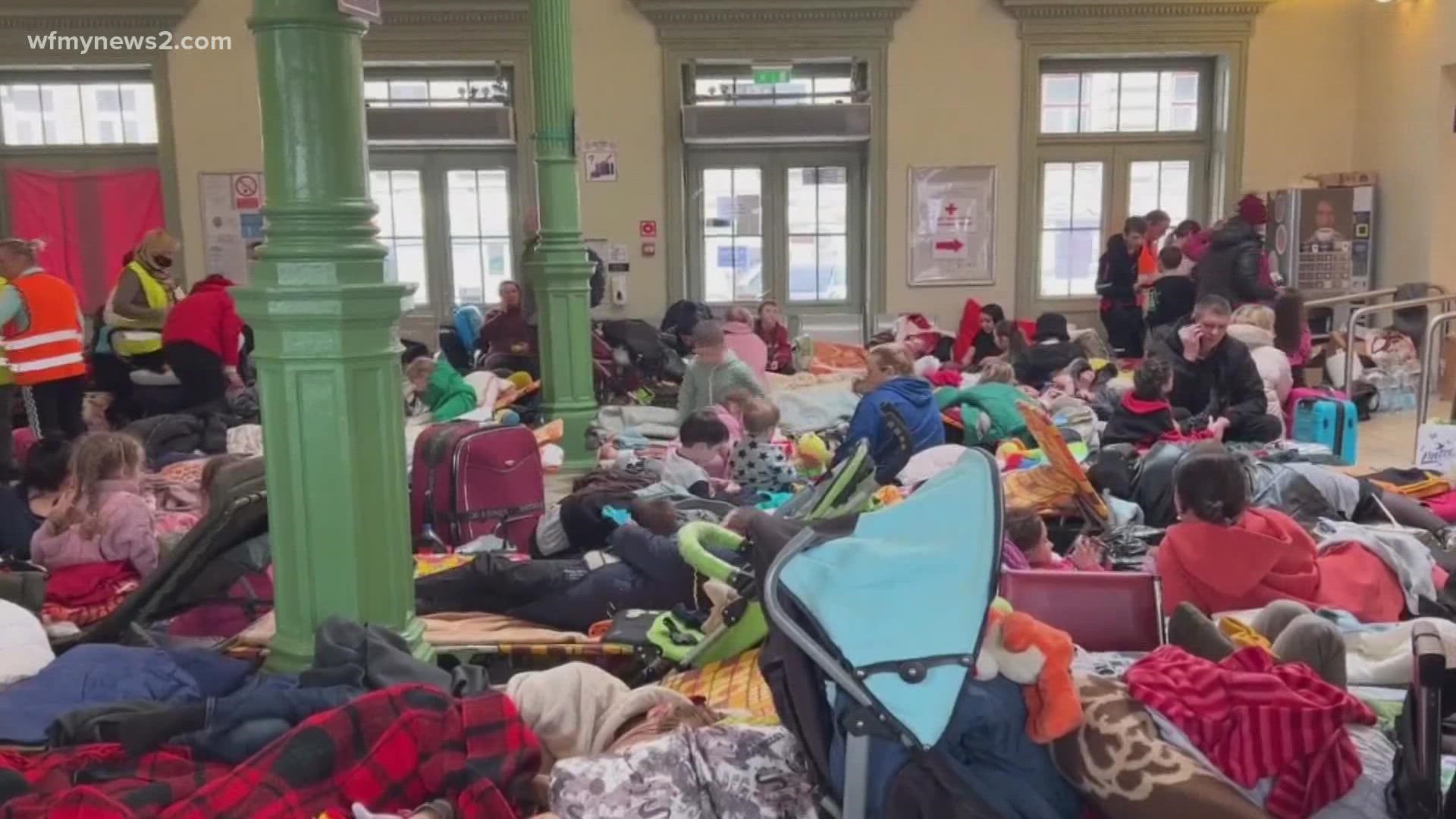GREENSBORO, Md. — More than two and a half million Ukrainians have fled their country.
250,000 of them have gone to the small neighboring country of Moldova.
University of North Carolina Greensboro has partnered with nurses in the sovereign state as they provide medical care to refugees.
UNCG has a long-standing partnership with the Moldova Nursing collaborative.
Their connection went from developing a four-year nursing program to now educating Moldovan nurses on how to care for refugees.
They’re doing it through a web series. Audrey Snyder with UNCG’s School of Nursing led the first webinar on the unique need of refugees.
"They came to us with a list and said we are already seeing refugees. We are seeing refugees with injuries," Snyder said. "They said we have no experience associated with working with amputations."
The first webinar reached capacity with 500 people signed on’s from nurses and leaders in Moldova and Ukraine.
“We focused on public health concerns associated with the refugee population and how to manage nursing care in refugee camps,” Snyder said. “ Some diseases have historically been a challenge in refugee camps. What are signs and symptoms and how to treat them. So they can ahead of time have this knowledge.”
Kent Logsdson the US Ambassador to Moldova was also in attendance to speak with nurses about refugee conditions.
“Many of them will need assistance from professionals like whether it's mental or physical effects of the war," Logsdon said, "Your impacts is going to be enormous,"
Snyder said camps are filling fast and Moldova leaders have refugees living in their homes.
Elena stemposcaia the president of the Moldovan nursing association said she anticipates soldiers will soon cross the border as well.
“The soldiers might have some wounds and maybe in some of the webinars we might address that topic,” Stemposcais said. “Such kinds of things are not known to us."
Snyder said the leader in Moldova
UNCG will hold 5 more webinars ranging from trauma and physiological first aid to emergency triage.
“During the first week and a half of this crisis they did not have a large refugee center set up," Snyder said. "It was day 10 when they were able to set up a center."
This progress was made all by using the internet to improve a real-life crisis.

